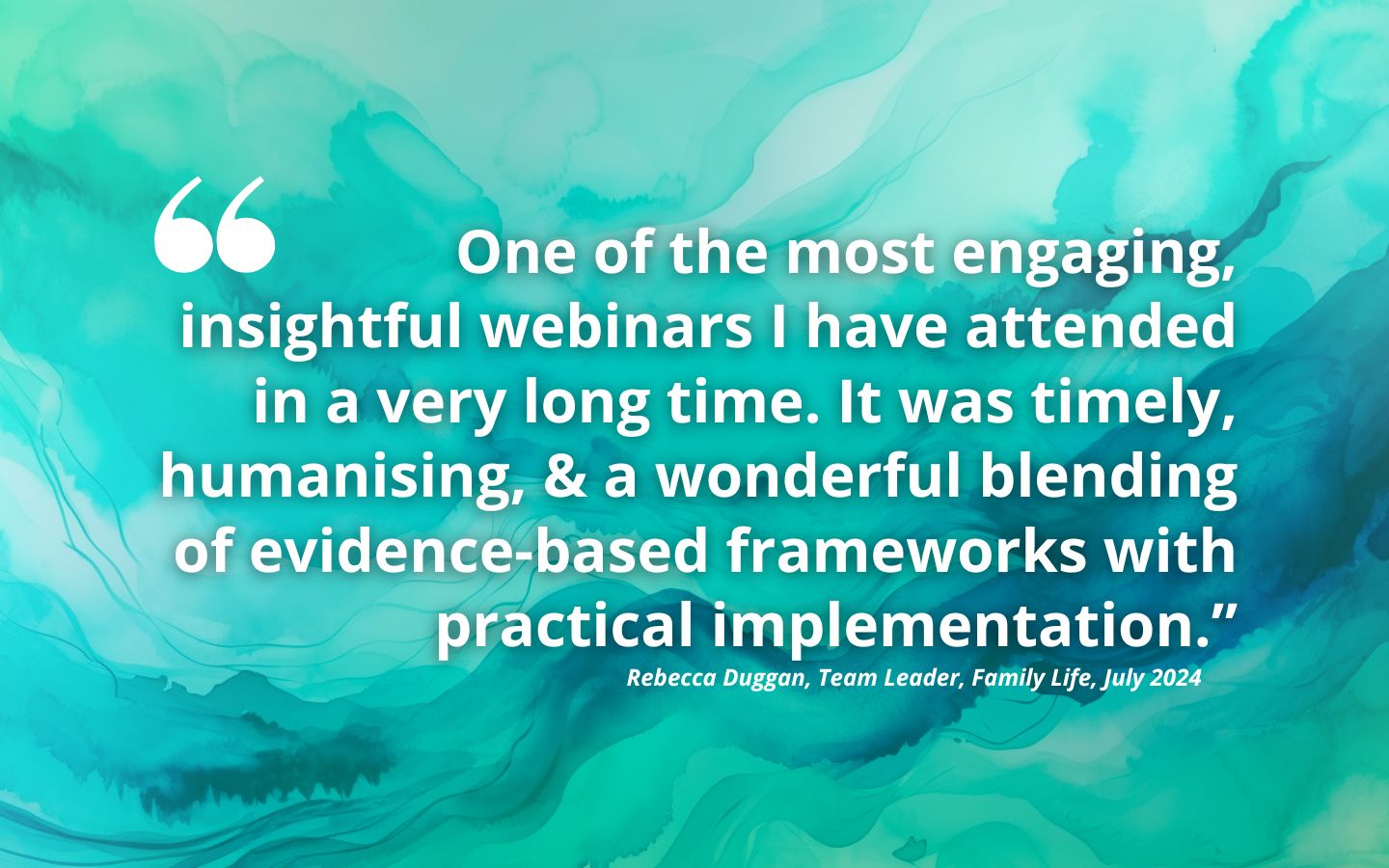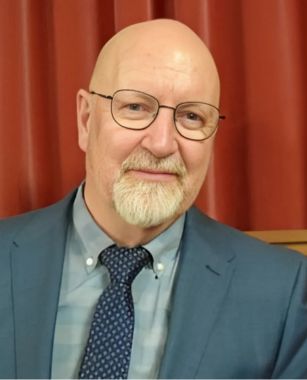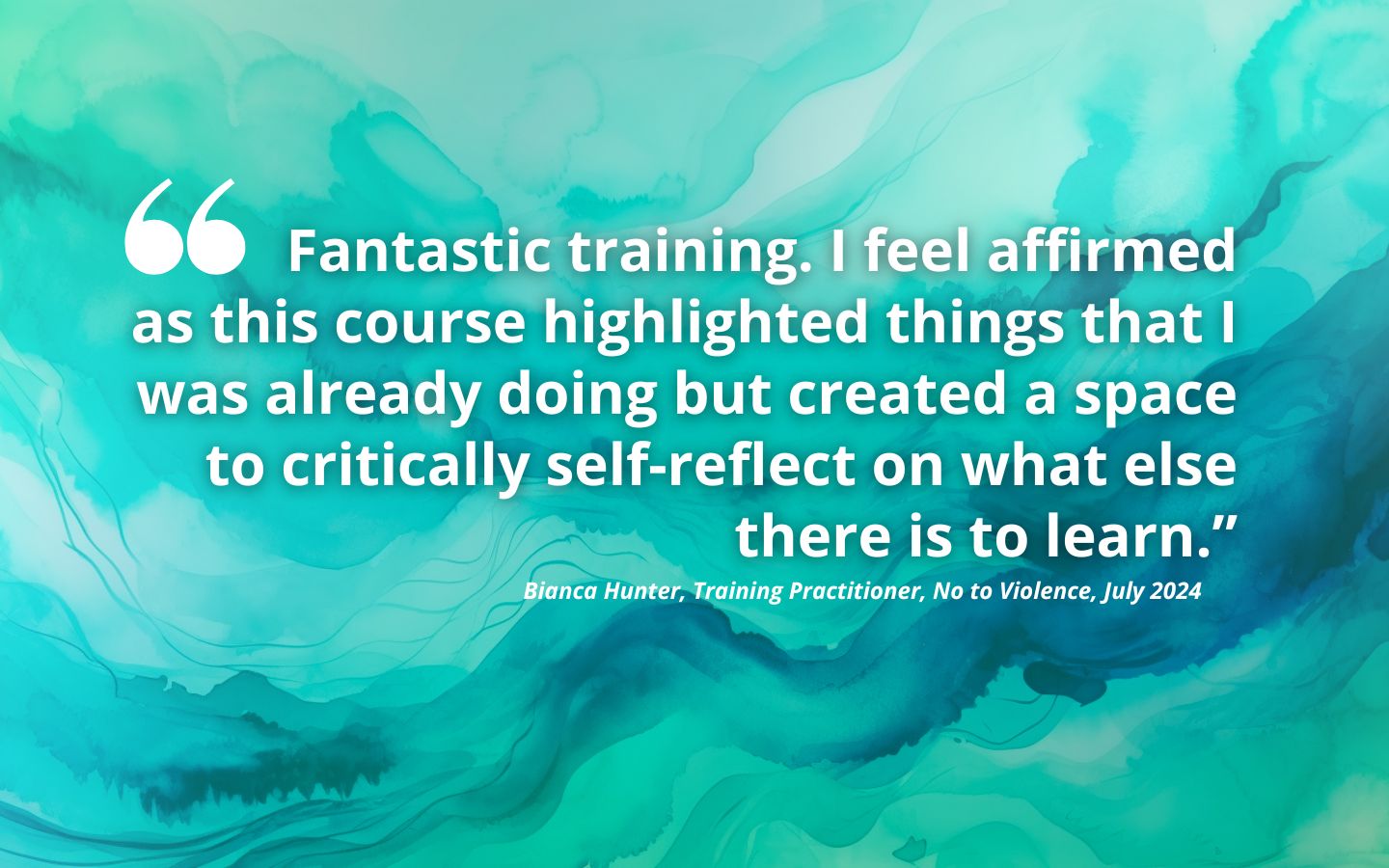Applying Trauma-Informed Practice in Men’s Domestic Violence Intervention


Where does trauma-informed practice fit in men’s domestic violence intervention?
There is no denying that we need to engage differently in our work with men if we want to break the cycle of men’s violence against women.
To foster meaningful and sustained change through men’s work, we must challenge the narratives that allow harmful behaviours to persist and create safe spaces for men to take responsibility for their choices, triggers, and behaviors. We must do this without shaming and using trauma-informed, evidence-based, and transformative approaches.
Join our experienced facilitator, Brian Sullivan, who will lead the group through a variety of modes of practice. This course is ideal for practitioners who wish to enhance their current practice outcomes and support men to self-awareness; self-reflection; and self-transformation, via a cohesive group process, where connection, compassion, and change-focus are critical.

Dr Brian Sullivan
CEO, Red Rose Foundation & Founder, Sicura
Dr Brian Sullivan has over twenty years of experience as an academic, professional practitioner, trainer, supervisor, and educator in the domestic violence sector. He was initially trained in the Duluth coordinated community approach to working with perpetrators and has been a facilitator of men’s programs for many years. His PhD research, completed in the USA, explored the effectiveness of court-mandated programs for male DV offenders.
Brian was also the senior lecturer and head of course for the Domestic and Family Violence Practice Program at Central Queensland University and is a member of the QLD Police Service Domestic and Family Violence Advisory Committee.
Key benefits


Learn how to challenge men and work effectively with excuses and denial appropriately


Explore the complex relationship between thoughts and actions, trauma and shame


Create trust, vulnerability, and honest disclosure


Lean into the discussion regarding collusion & empathy


Work effectively with coercive control & gaslighting


Unpack the multi-layers of complexity around accountability and responsibility

Your event experience
- Gain the knowledge and skills to enhance your practice in working with people who use violence
- Walk away with ideas, knowledge, and information to implement in your organisation to better respond to the men, women, or children whom you support
- Re-frame, reimagine, and repurpose your work for your clients and community
- Highly interactive learning – You will get the chance to get involved with group-based activities and get direct feedback from an expert.
- The support and guidance of an expert
- Real-world learning with practical examples and case studies
Who will attend
This Masterclass is ideal for practitioners who are currently working with those who perpetrate family violence and coercive control and want to increase their engagement skills, including:
- Men’s Behaviour Change Group Facilitators
- Private Practice Therapists and Psychologists
- Frontline practitioners, including emergency staff and ambulatory care
- Family and domestic violence Agencies
- Rehabilitation, counseling, and recovery services
- Substance Abuse Professionals
- Criminal Justice Workers
- Educators & Peer Counsellors
- Refuge staff and Housing Officers

Agenda
Times shown in AEDT
Acknowledgment of Country & opening remarks
Introductions & framing of masterclass
The context of men’s DFV intervention programs & trauma-informed work
- Internal V external motivation
- The strangeness of group work
- Initial caution and defenses
- Key principles of desistance and persistence
The C.H.I.M.E.S. model as a trauma-informed framework
- Connection
- Hope
- Identity
- Meaning
- Engagement and education
- Safety
The group process as trauma integrated practice
- Safety
- Respect and sensitivity
- Belonging and inclusion
- Facilitator modelling
Morning tea
What are we doing in group work with men
- Safe but not soft trauma work
- The 6 Cs for facilitator engagement
- Attending to the individual, attending to the group
Tactics and motivations of men in group
- The power of listening
- The double-sided nature of image management
- The ways men account for their violence
- Group listening exercise – casework
Extended question time and reflections from day one
Close of Day One
Opening remarks, reflections, and observations from day one
Assessing & managing risk – an ongoing obligation
- Safety first
- The lethal S’s
- Managing misogyny
- The threat of threats
Working with excuses and justification in a non-collusive way
- The here-and-now of the process
- When he says that.. how should facilitators respond?
- Working with men’s metaphors
Transformative learning in the men’s group
- Disorienting dilemmas
- The novelty of challenging assumptions
- Self-awareness to self-reflection
- Dealing with the manosphere
- The role of unlearning in transformation
Morning break
Accountability without alienation
- Fertile questions
- Motivational skills
- Having hard conversations
The hopeful practitioner
- What is hope and how do I stay hopeful in this space?
- Hope, resilience, and well-being
- The reflective team
Extended question time and reflections from day two
Close of Day Two and Masterclass
Pricing
Save up until 20 December
+GST
Early bird pricing
Save $500
Save up until 17 January
+GST
Early bird pricing
Save $300
Save up until 7 February
+GST
Early bird pricing
Save $200
Standard price after early bird savings
+GST
“I have gained a vast amount of knowledge from this course.”
Rebecca De Silva
Men & Co Services, How to use empathy to elicit personal responsibility with men who use violence Seminar July 2024
“Fantastic training. I feel affirmed as this course highlighted things that I was already doing but created a space to critically self-reflect on what else there is to learn. I’m delighted with the experience.”
Bianca Hunter
Training Practitioner, No to Violence, How to use empathy to elicit personal responsibility with men who use violence Seminar July 2024
“The course I attended was incredible. Very rich yet pragmatic.”
Samuel Cameron
Clinical Nurse, Queensland Health
“This was one of the most engaging, insightful courses I have attended in a very long time. It was timely, humanising, and a wonderful blending of evidence-based frameworks with practical implementation, reflecting the incredibly complex experiences of families that we see every day. Thank you!”
Rebecca Duggan
Team Leader, Family Life